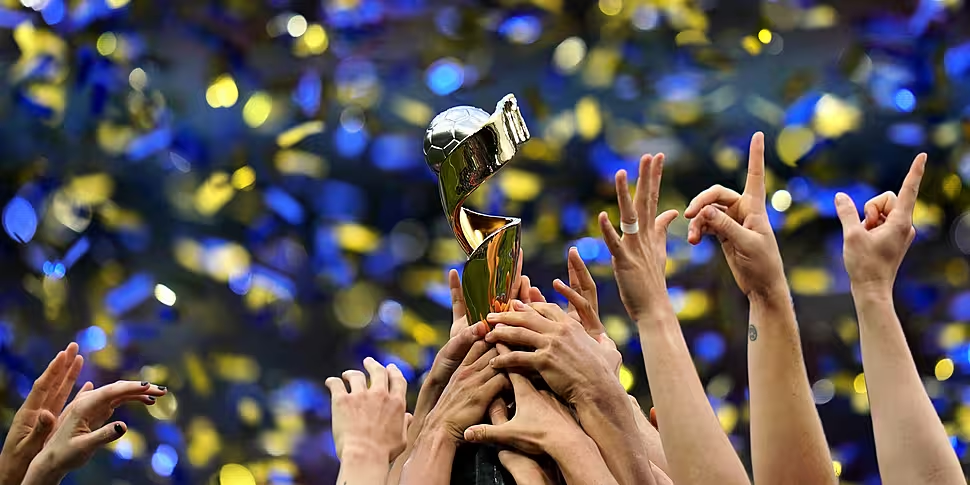Staging the men's and women's World Cups every two years will be "profoundly detrimental" to the women's game, according to several stakeholders.
FIFA's plans do not stop at making the men's World Cup a biennial event - they want the same for the Women's World Cup.
The 2023 event is set to be staged in Australia and New Zealand, and will be the last under the existing international match calendars.
There has been strong opposition to FIFA's proposal to squeeze the time between World Cups, and have a fresh take on the international calendar.
UEFA president Aleksander Ceferin said recently that he was "astonished" by the PR campaign around a biennial World Cup headed by FIFA's Chief of Global Football Development, Arsene Wenger.
The European Clubs Association (ECA) and South American confederation CONMEBOL are also firmly against the idea.
Officially, the proposal is still at the consultancy phase, but there is a growing sense that FIFA want to push it through at all costs.
World football's governing body recently enlisted former Women's World Cup-winning manager Jill Ellis to speak in favour of a biennial World Cup.
“I think it was very important to start this process to understand [questions like] what are the challenges to the Europeans, to the South Americans, to the club coaches, to the national team coaches? Ellis said, "We want a model that is player-centric.
"Ultimately, that’s our game, the player. And so making sure that their lens and their voice is represented in this process has been very important."
A joint statement from UEFA, the ECA and several of Europe's top women's leagues has outlined their issues with the biennial proposal.
"The fast-paced nature of the (so far) very selective consultation process and all-but agreed proposals have not allowed a careful reflection on what is in the best interests of the future development of women’s football or adequately assessed the possible irreversible consequences such a change might entail," they said.
They see the key problems behind biennial World Cups as:
-
- Adding further congestion to an already crowded women’s IMC with more women’s final tournaments.
-
- Adding further congestion to the men’s IMC with more men’s final tournaments which will hamper the visibility and growth of women’s youth, club and national team competitions and women’s domestic leagues around the globe.
-
- Placing further strain on technical, medical, and administrative resources available to women’s national team football players, as the need for regular year-long provisions of such expertise is removed and resource is focused on men’s competitions.
-
- Leading to a greater risk of physical injury and mental health impacts for top players due to more concentrated matches for qualification pathways with limited preparation periods and, the increased burden placed on players during more frequent final tournament conditions.
-
- Interrupting the professionalisation process and investment in domestic leagues, and therefore the ambition to create meaningful full-time employment for female players and structures that offer an elite environment. There are still very few full-time professional leagues in the world.
-
- Reducing the opportunities for smaller, middle-sized and developing nations across the globe to participate in a FIFA Women’s World Cup, as only those leading nations with strong foundations have the capacity and resource levels to make it viable to compete so regularly.
-
- Compromising confederation-organised qualification campaigns due to fewer windows, leading to fewer regular playing opportunities for all. Particularly, less developed associations may miss out on regular organised football and thus also on playing final tournaments which is fuelling the sporting gap between nations.
-
- Limiting the expansion of continental championships at club and national team level.
-
- Significantly reducing the regularity and exposure of women’s national team football throughout the season, which will negatively impact the promotion of the game, the creation of role models and the ability to attract new partners.
-
- Neglecting the development of youth football and existing competitions, frameworks that are fundamental to the game’s future
-
- Lowering investments from sponsors and partners into the women’s game due to a saturation of markets which will undermine the financial viability of women’s football at international and national level, creating further inequality with the men’s game.
-
- Disrupting the global and rapidly evolving fan culture for women’s football that is taking off, but risks being impacted through the enhancement of competing established sporting events which will divert fans’ interests and investment in the women’s game.
-
- Creating upheaval for other sports and important other major sporting events.
They say the want to find the best way forward for all parties, requesting further transparency from FIFA.
The statement was signed by:
Kvindeliga (Danish Football Association)
The FA Women’s Super League (English Football Association)
The FA Women’s Championship (English Football Association)
Frauen-Bundesliga (German Football Association)
Kansallinen Liiga (Football Association of Finland)
Serie A Femminile (Italian Football Association)
Eredivisie Vrouwen (Royal Netherlands Football Association)
Liga 1 Feminin (Romanian Football Federation)
Elitfotboll Dam, Sweden
Women’s Super League (Swiss Football Association)
European Club Association
UEFA
Claudio Ranieri returns to the Premier League as Watford boss









